Are you navigating the complexities of trucking capacity contracts? Understanding the intricacies involved can make a significant difference in optimizing your logistics strategy. From outlining service expectations to establishing clear terms for capacity coverage, having the right letter template can streamline the process. Dive deeper with us as we explore essential elements to include in your trucking capacity contract!

Header Information (Company Name, Address, Date)
A trucking capacity contract outlines the agreement between companies regarding transportation services. Important details such as the name of the logistics company, official address (including city, state, and zip code), and the date of contract signing should be included in the header information. This sets a clear reference point for contractual obligations. Effective contracts often specify the service area (e.g., interstate, intrastate) and the types of goods to be transported, along with the agreed-upon trucking capacity, which may range widely depending on the fleet size and equipment available, such as flatbeds, refrigerated trucks, or standard freight haulers.
Contractual Parties (Shipper and Carrier Details)
The trucking capacity contract establishes a formal agreement between the Shipper, who is responsible for arranging the transportation of freight, and the Carrier, who provides trucking services to deliver the shipment. The Shipper's details include the company name, address, contact information, and the specific types of goods being transported, which may include perishable items, hazardous materials, or bulk commodities. The Carrier's details encompass the company name, address, contact information, fleet size, and types of vehicles, such as 18-wheelers or flatbed trucks, that will be utilized for the delivery. This contract outlines responsibilities, payment terms, delivery deadlines, and conditions regarding liability and insurance coverage, ensuring the safe and efficient transport of goods across specified routes, such as interstate highways or designated regional corridors.
Scope of Services (Type and Volume of Goods, Specific Routes)
The trucking capacity contract outlines the framework for the transportation of goods, detailing the type and volume of cargo, along with specific routes utilized for delivery. Cargo types may include perishable goods (such as fruits and vegetables, requiring refrigerated transport) and raw materials (like steel and lumber), with volumes potentially reaching up to 20 tons per shipment. Specific routes may involve interstate travel along major highways, such as Interstate 80 (I-80) and Interstate 95 (I-95), ensuring timely delivery from distribution centers in key areas, like Chicago, Illinois, to warehouses in New York City, New York. Adherence to state regulations during transport, including weight restrictions (typically 80,000 pounds collectively) and safety standards, remains crucial to maintain compliance and efficiency in service delivery.
Terms and Conditions (Payment Terms, Liability, Termination Clauses)
Trucking capacity contracts operate under specific terms and conditions to ensure clarity and mutual understanding between parties. Payment terms typically include stipulations such as net thirty days for invoicing and late fees of 1.5% per month on overdue balances. Liability clauses define the carrier's responsibility, often limiting liability for loss or damage to cargo unless due to gross negligence, emphasizing the need for shippers to secure appropriate cargo insurance. Termination clauses outline conditions under which either party may terminate the agreement, often requiring written notice of thirty days and stipulating allowable termination for breaches of contract or failure to maintain insurance requirements. In summary, clear articulation of these elements is crucial in establishing a solid foundation for a trucking capacity agreement.
Signatures and Contact Information
A trucking capacity contract involves essential details to formalize agreements between companies for transportation services. Signatures of authorized representatives from both parties, representing a legal commitment, finalize the contract. Contact information requires accurate details: names, titles, phone numbers, and email addresses for both parties ensuring efficient communication. The date of signing should also be documented, adding clarity to the agreement. This contract by freight carriers, like Full Truckload (FTL) and Less Than Truckload (LTL) providers, guarantees capacity availability, pricing conditions, and liability coverage, ensuring compliance with logistics regulations and enhancing operational transparency.

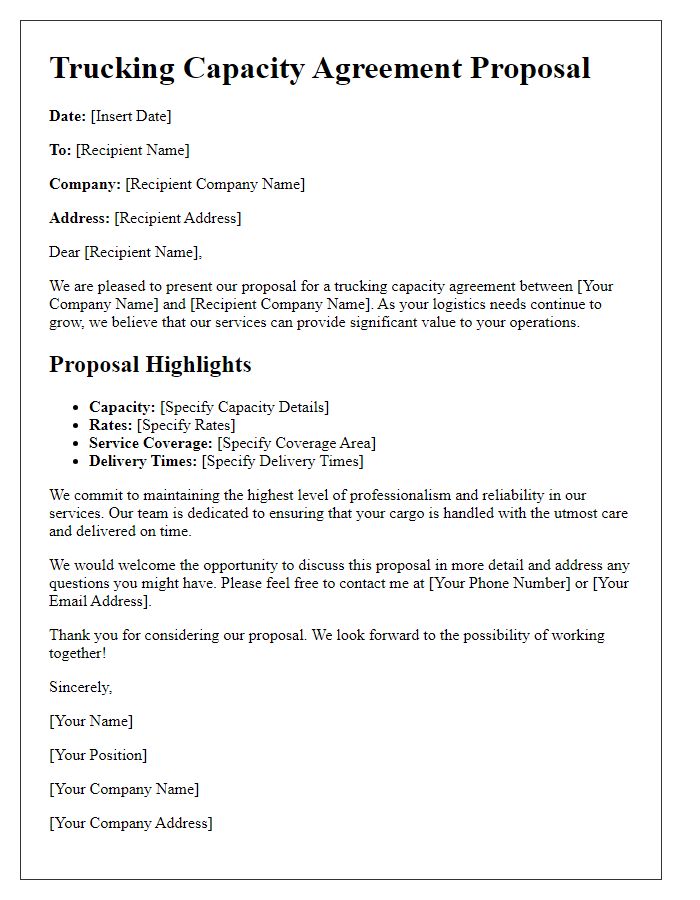
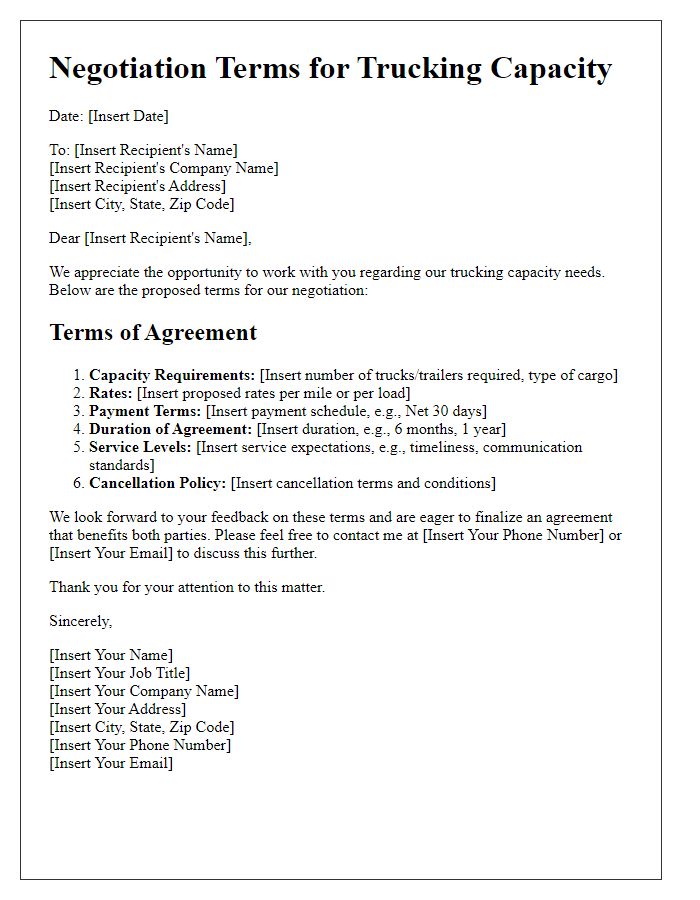
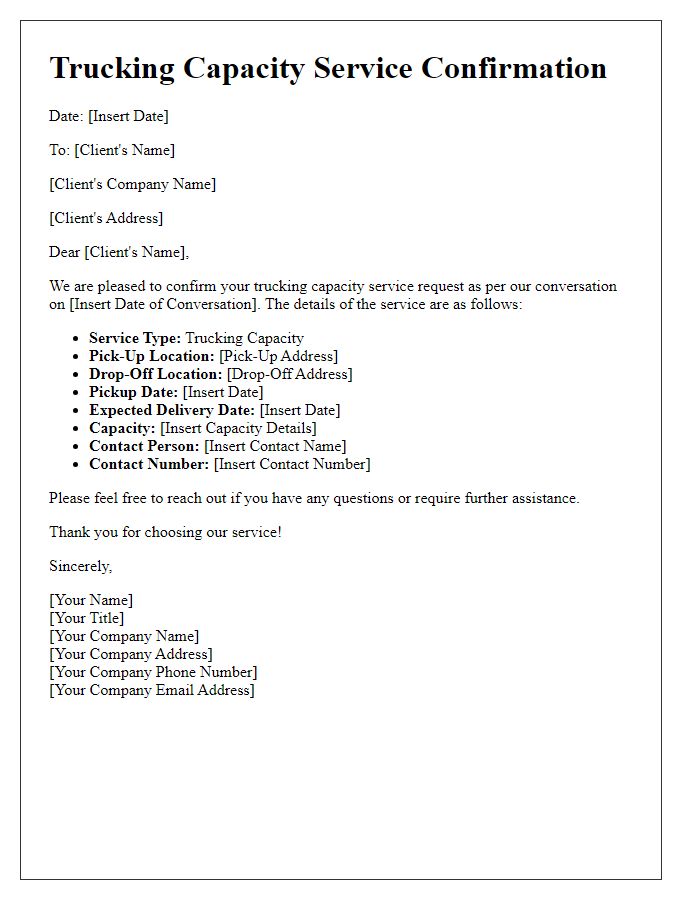
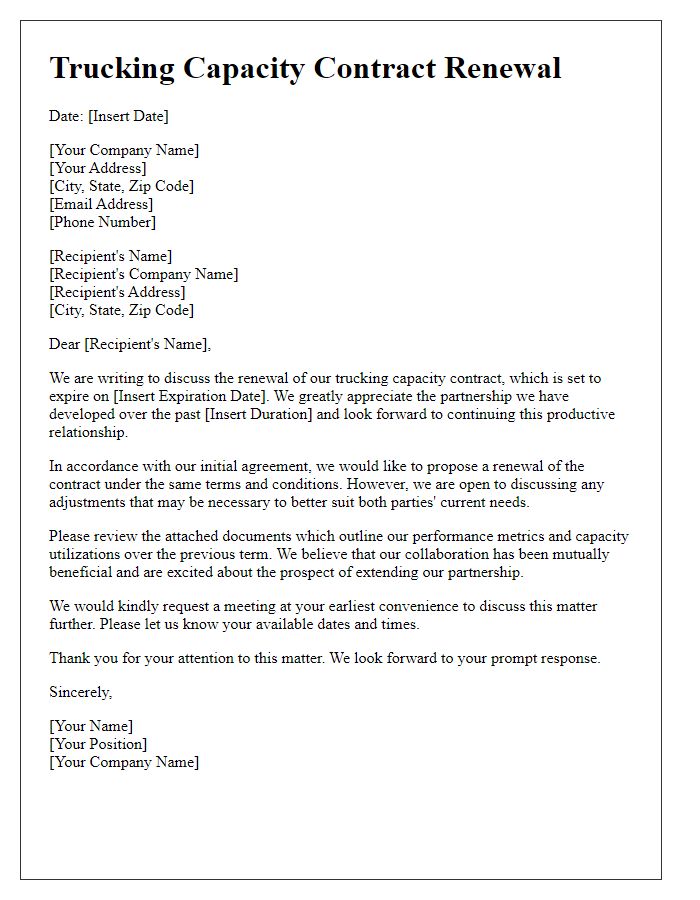
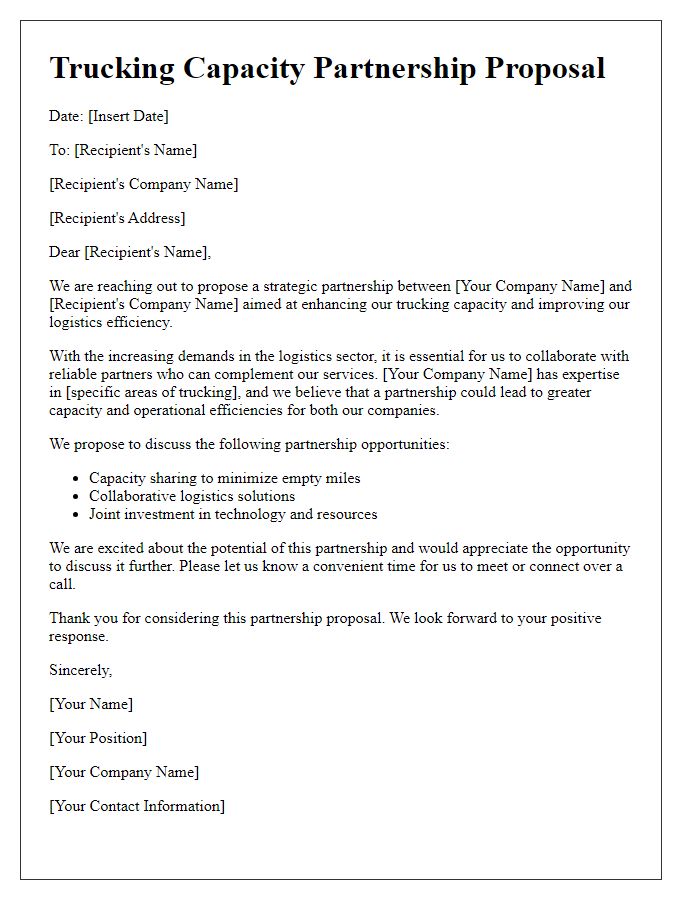

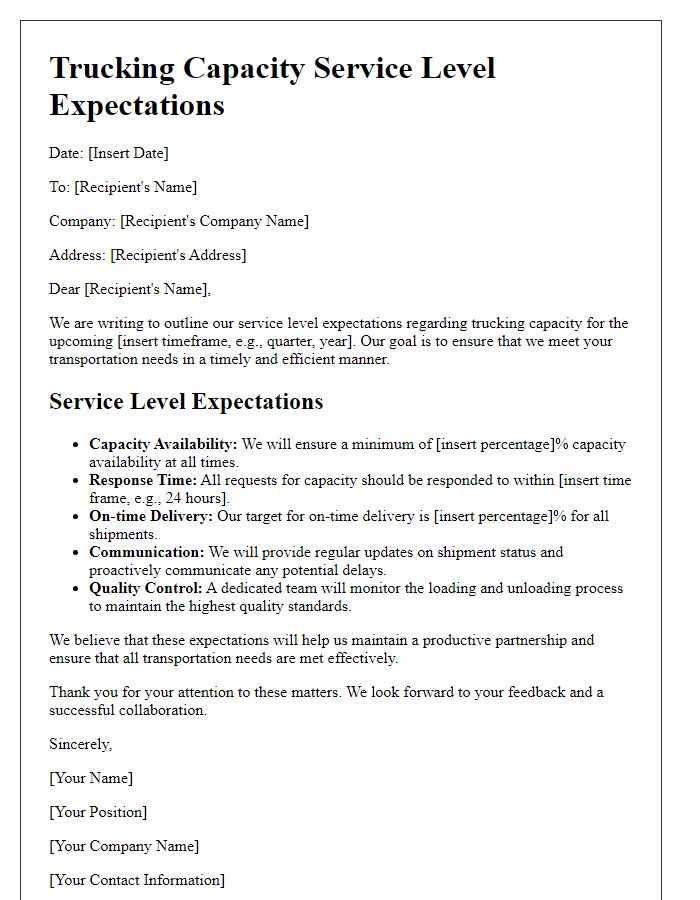
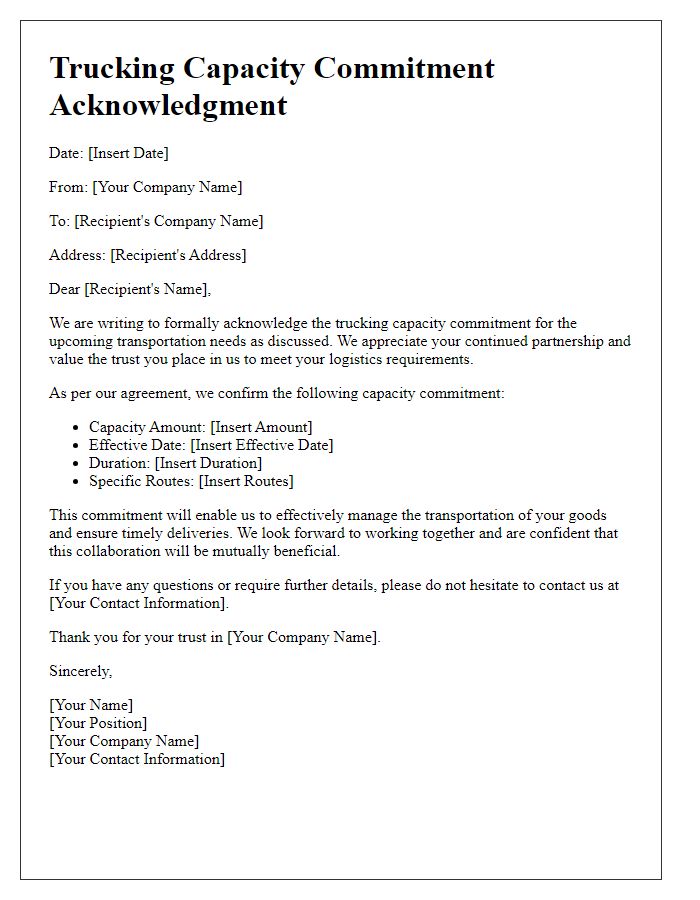
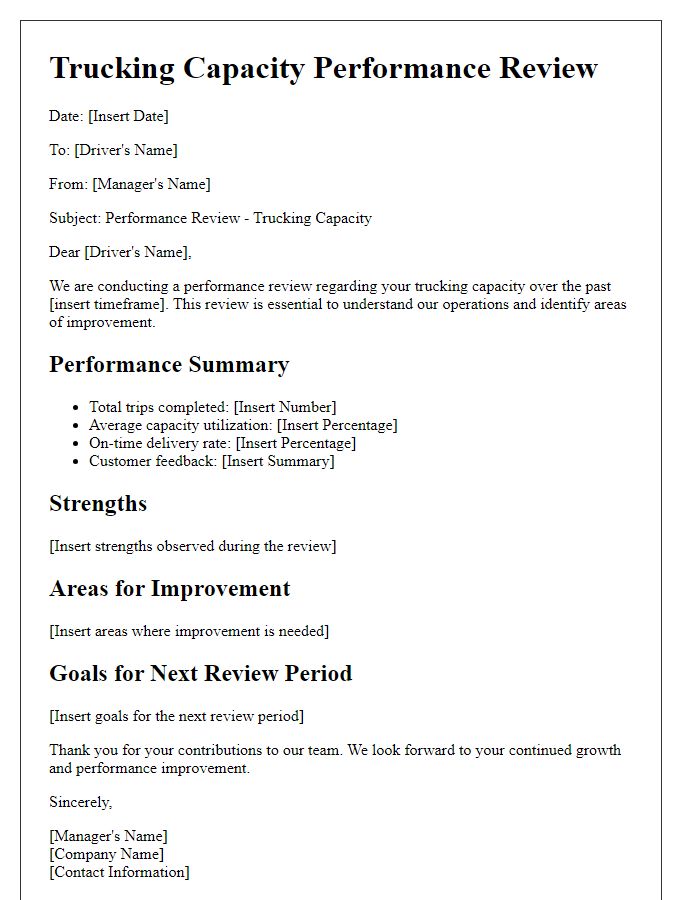
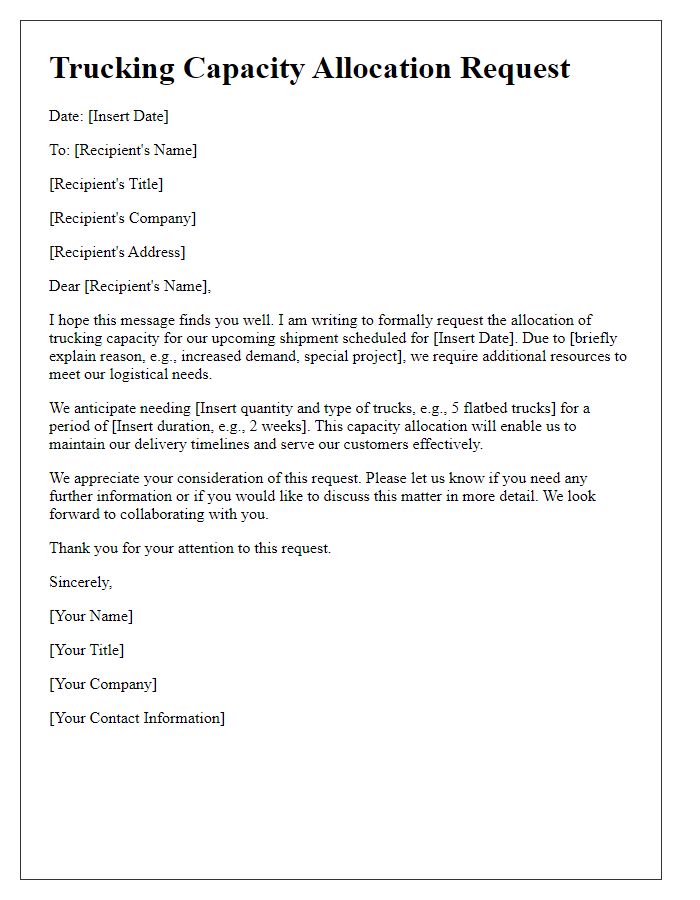


Comments